This comprehensive guide provides a detailed review of medical-surgical nursing concepts, offering 450 practice questions and in-depth answer explanations to ensure exam readiness and clinical confidence.
1.1 Overview of Medical-Surgical Nursing
Medical-surgical nursing is a dynamic field focusing on the care of adult patients with diverse medical and surgical conditions. It encompasses the management of acute and chronic illnesses, emphasizing health promotion, disease prevention, and rehabilitation. Nurses in this specialty must possess strong assessment, diagnostic, and critical thinking skills to provide holistic, evidence-based care. The role involves collaborating with interdisciplinary teams to address complex patient needs, making it a cornerstone of healthcare delivery across various settings, from hospitals to outpatient clinics.
1.2 Importance of a Comprehensive Study Guide
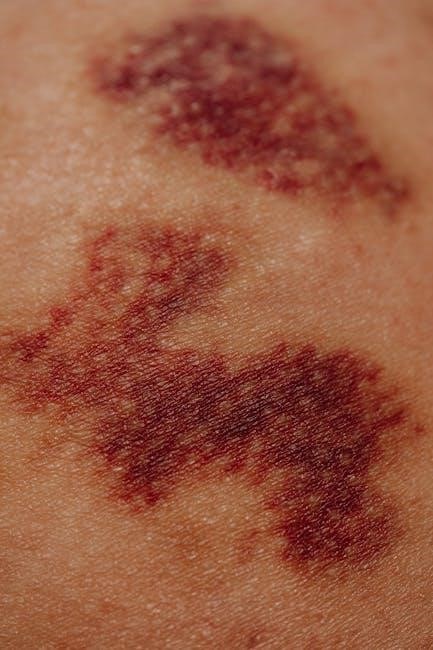
A comprehensive study guide is essential for mastering medical-surgical nursing concepts and excelling in certification exams. It provides a structured approach to learning, ensuring all critical topics are covered in depth. With detailed explanations, practice questions, and real exam simulations, a well-designed guide helps build clinical judgment and confidence. It bridges gaps in knowledge, reinforces key concepts, and prepares nurses to apply evidence-based practices effectively in real-world scenarios, making it an indispensable tool for both students and professionals.
1.3 How to Use This Study Guide Effectively
To maximize the benefits of this study guide, start by reviewing each chapter thoroughly, focusing on key concepts and examples. Practice with the included questions to assess your understanding and identify areas for improvement. Use the detailed answer explanations to reinforce learning. Simulate exam conditions by taking full-length practice tests, and review your results to refine your test-taking strategies. Regularly revisit challenging topics and integrate active learning techniques, such as flashcards or group discussions, to enhance retention and confidence.
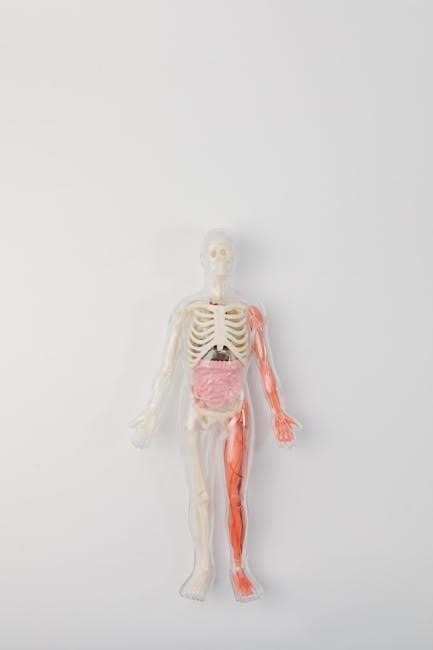
Foundational Concepts in Med Surg Nursing
Master essential skills in health history collection, nursing diagnosis, and patient safety to build a strong foundation for effective medical-surgical nursing practice and decision-making.
2.1 Health History Collection and Assessment
Accurate health history collection is crucial for identifying patient needs and developing effective care plans. This process involves gathering detailed information about a patient’s medical history, medications, allergies, and lifestyle. A comprehensive assessment includes physical examination, diagnostic tests, and patient-reported symptoms. Study guides emphasize the importance of organized documentation and critical thinking to prioritize care. By mastering these skills, nurses can ensure accurate diagnoses and tailored interventions, improving patient outcomes and safety. Effective health history collection is the cornerstone of holistic patient care.
2.2 Nursing Diagnosis and Care Planning
Nursing diagnosis and care planning are essential skills for med-surg nurses, focusing on identifying patient problems and developing individualized interventions. Study guides emphasize the use of NANDA-I taxonomy for accurate diagnosis formulation. Effective care plans prioritize patient goals, outcomes, and evidence-based interventions. By mastering this process, nurses ensure holistic, patient-centered care. Practice questions and case studies in study guides help refine these skills, enabling nurses to deliver targeted, effective care and improve patient outcomes.
2.3 Patient Safety and Infection Control
Patient safety and infection control are critical in med-surg nursing, focusing on preventing harm and reducing risks. Study guides emphasize strategies like hand hygiene, isolation protocols, and sterile techniques. They also cover medication safety, fall prevention, and error reporting. By mastering these practices, nurses can minimize complications and improve patient outcomes; The guides include case studies and scenarios to reinforce these concepts, ensuring nurses are well-prepared to maintain a safe care environment and prevent infections effectively.

Clinical Judgment and Critical Thinking
Developing clinical judgment and critical thinking is essential for effective patient care. Study guides provide strategies to analyze patient data, prioritize interventions, and make informed decisions efficiently.
3.1 Developing Clinical Judgment Skills
Cultivating clinical judgment is vital for nurses to make sound decisions. Study guides offer realistic patient scenarios, practice questions, and case studies to enhance critical thinking. By analyzing symptoms, prioritizing care, and evaluating outcomes, nurses refine their ability to respond effectively. These resources emphasize evidence-based practices, helping nurses connect theory with real-world applications. Regular practice with diverse scenarios strengthens problem-solving skills, ensuring confident and competent patient care delivery in dynamic clinical environments.
3.2 Critical Thinking in Patient Care
Critical thinking is essential for nurses to deliver effective patient care. Study guides provide realistic patient scenarios and practice questions to enhance analytical skills. By assessing symptoms, prioritizing actions, and evaluating outcomes, nurses develop the ability to make informed decisions. These resources emphasize evidence-based practices, encouraging nurses to think logically and apply knowledge to complex situations. Regular practice with diverse case studies sharpens the ability to identify patterns, anticipate complications, and implement appropriate interventions, ensuring high-quality patient care.
3.3 Prioritization and Time Management
Effective prioritization and time management are crucial for nurses to handle multiple tasks efficiently. Study guides offer strategies to organize responsibilities, such as using mnemonics or frameworks to assess patient needs. By focusing on high-priority tasks and delegating when possible, nurses can manage their workload effectively. These resources emphasize the importance of staying calm under pressure and making decisions that align with patient care goals. Mastering these skills ensures seamless workflow and better patient outcomes, even in fast-paced environments.
Pharmacological Interventions
Mastering pharmacological interventions is vital for safe medication administration. Study guides cover common medications, potential interactions, and strategies to minimize adverse effects, ensuring optimal patient care outcomes.
4.1 Medication Administration and Safety
Safe medication administration is a cornerstone of medical-surgical nursing. Study guides emphasize understanding pharmacokinetics, dosing, and potential interactions. They provide strategies to prevent errors, such as using the “rights” of medication administration and barcode scanning. Practice questions and case studies help nurses apply knowledge in real-world scenarios, ensuring patient safety. Detailed answer explanations reinforce understanding of high-risk medications and adverse effect management, enabling nurses to administer drugs confidently and effectively in clinical settings.
4.2 Common Medications in Med Surg Nursing
Mastering common medications is essential for effective patient care. Study guides detail key drug categories, such as cardiovascular agents, analgesics, and antibiotics. Nurses learn about anticoagulants like heparin, antihypertensives like ACE inhibitors, and pain management drugs like opioids. Each medication’s purpose, side effects, and interactions are explored. Practice questions and case studies help apply this knowledge, ensuring nurses can administer medications safely and appropriately, optimizing patient outcomes in diverse clinical scenarios.
4.3 Managing Adverse Effects and Interactions
Effective management of adverse effects and drug interactions is critical in med-surg nursing. Study guides emphasize assessing patients for potential side effects, such as gastrointestinal distress or allergic reactions. Nurses learn to monitor lab results and patient symptoms, adjusting medications as needed. Key strategies include patient education on reporting side effects and documenting interactions. Practice questions and case studies help nurses apply these concepts, ensuring safe medication administration and minimizing risks in clinical settings.

Surgical Nursing Care
This section focuses on preoperative and postoperative care, wound management, and pain strategies. It provides essential insights and practical approaches to ensure optimal patient recovery and comfort.
5.1 Preoperative and Postoperative Care
This section provides detailed strategies for preoperative and postoperative nursing care, focusing on patient assessment, education, and surgical site management. It emphasizes pain management, early mobility, and preventing complications such as infection or DVT. Evidence-based practices and guidelines are highlighted to ensure safe and effective care, addressing both immediate post-surgical needs and long-term recovery goals.
5.2 Wound Care and Management
This section focuses on evidence-based wound care strategies, including assessment, cleaning, and dressing techniques. It covers the management of various wound types, such as surgical, traumatic, and chronic wounds. Emphasis is placed on promoting healing, preventing infection, and minimizing complications. The guide also addresses the use of advanced wound therapies and patient education for optimal recovery. Detailed case studies and practice questions reinforce key concepts, ensuring nurses are well-prepared to provide effective wound care in clinical settings.
5.3 Pain Management Strategies
This section provides a detailed approach to effective pain management, emphasizing assessment techniques and individualized care plans. It explores pharmacological and non-pharmacological interventions, including opioid and non-opioid therapies, as well as alternative methods like relaxation and physical therapy. The guide also addresses patient education on pain relief options and strategies to minimize adverse effects. Practice questions and case studies help nurses apply these concepts in real-world scenarios, ensuring comprehensive understanding and improved patient outcomes in pain management.

Medical Conditions and Nursing Care
This section covers comprehensive care strategies for cardiovascular, respiratory, and gastrointestinal disorders, focusing on assessment, diagnosis, and evidence-based interventions to improve patient outcomes and clinical decision-making skills.
6.1 Cardiovascular Nursing
Cardiovascular nursing focuses on managing conditions like heart failure, myocardial infarction, and arrhythmias. This section covers assessment techniques, diagnostic tools, and evidence-based interventions to improve patient outcomes. Emphasizing pharmacological and non-pharmacological strategies, it addresses lifestyle modifications, medication adherence, and monitoring for complications. Nurses learn to prioritize early detection of cardiovascular risks and implement individualized care plans. The guide also highlights the importance of patient education on diet, exercise, and stress management to promote long-term cardiac health and reduce hospital readmissions, aligning with current clinical guidelines and certification exam standards.
6.2 Respiratory Nursing
Respiratory nursing focuses on managing acute and chronic pulmonary conditions, such as COPD, asthma, and pneumonia. This section covers assessment techniques, oxygen therapy, and mechanical ventilation. Nurses learn to interpret arterial blood gases and chest X-rays, ensuring effective care for patients with breathing difficulties. The guide emphasizes pharmacological interventions, like bronchodilators, and non-pharmacological strategies, such as pulmonary rehabilitation. Patient education on inhaler use and lifestyle modifications is also highlighted to improve outcomes and reduce complications, aligning with evidence-based practices and certification standards.
6.3 Gastrointestinal and Genitourinary Nursing
This section covers the care of patients with gastrointestinal and genitourinary disorders, such as Crohn’s disease, ulcerative colitis, and urinary tract infections. Nurses learn to assess symptoms, manage medications, and implement dietary changes. The guide emphasizes interventions like bowel training and catheter care to prevent complications. Case studies and practice questions help reinforce understanding of these conditions, ensuring nurses can provide holistic care and improve patient outcomes in both acute and chronic settings.
Advanced Nursing Topics
This section explores complex care areas, including oncology, hematology, neurological, and musculoskeletal nursing. It provides detailed insights into symptom management, treatment options, and rehabilitation strategies for critically ill patients.
7.1 Oncology and Hematology Nursing
This section focuses on the care of patients with cancer and blood disorders, emphasizing symptom management, treatment options, and rehabilitation strategies. It covers chemotherapy, radiation therapy, and supportive care, while addressing complications like anemia and neutropenia. The guide includes detailed case studies and practice questions to enhance clinical judgment and evidence-based decision-making in oncology and hematology settings, ensuring nurses are well-prepared to provide compassionate and effective care.
7.2 Neurological and Musculoskeletal Nursing
This section covers the care of patients with neurological and musculoskeletal disorders, focusing on assessment techniques, symptom management, and rehabilitation strategies. It addresses conditions such as stroke, spinal injuries, and arthritis, emphasizing evidence-based interventions. The guide includes case studies and practice questions to enhance understanding of neurological deficits, pain management, and mobility restoration. It also highlights the importance of interdisciplinary collaboration to improve patient outcomes in these complex clinical scenarios.
7.3 Endocrine and Immune System Disorders
This section provides a detailed review of endocrine and immune system disorders, including diabetes, thyroid conditions, and autoimmune diseases. It covers assessment techniques, medication management, and patient education strategies. The guide includes practice questions and case studies to reinforce understanding of hormonal imbalances and immune system dysfunction. Emphasis is placed on evidence-based interventions and interdisciplinary care to optimize patient outcomes for these complex and chronic conditions.
Interdisciplinary Collaboration
Effective teamwork and communication with healthcare professionals enhance patient outcomes. Nurses play a key role in coordinating care and collaborating with physicians, therapists, and specialists for comprehensive treatment plans.
8.1 Working with Healthcare Teams
Effective collaboration with healthcare teams is crucial for delivering high-quality patient care. Nurses must communicate clearly, actively listen, and respect diverse roles within the team. Clear documentation and open dialogue ensure seamless coordination. Building trust and fostering a culture of mutual respect enhances teamwork. By working cohesively, healthcare professionals can address complex patient needs efficiently, improving outcomes and operational efficiency. Strong interpersonal skills and a patient-centered approach are essential for successful interdisciplinary collaboration in medical-surgical nursing settings.
8.2 Communication Strategies
Effective communication is vital in medical-surgical nursing to ensure clear information exchange. Use structured frameworks like SBAR (Situation, Background, Assessment, Recommendation) for clarity. Active listening and asking questions can prevent misunderstandings. Be concise and avoid jargon when communicating with patients and families. Non-verbal cues, such as eye contact and body language, also play a significant role. Tailor communication to meet cultural and individual needs, ensuring patient-centered care. Regular updates and transparent dialogue foster trust and collaboration, enhancing patient outcomes and teamwork efficiency.
8.3 Documentation and Reporting
Accurate and timely documentation is critical in medical-surgical nursing to ensure continuity of care. Maintain clear, concise, and organized records, including patient assessments, interventions, and outcomes. Use standardized formats and avoid errors to prevent legal issues. Regularly update charts to reflect current patient status and treatment plans. Effective reporting ensures seamless communication among healthcare teams, promoting patient safety and adherence to care protocols. Always prioritize accuracy and completeness to support optimal patient outcomes and legal compliance.
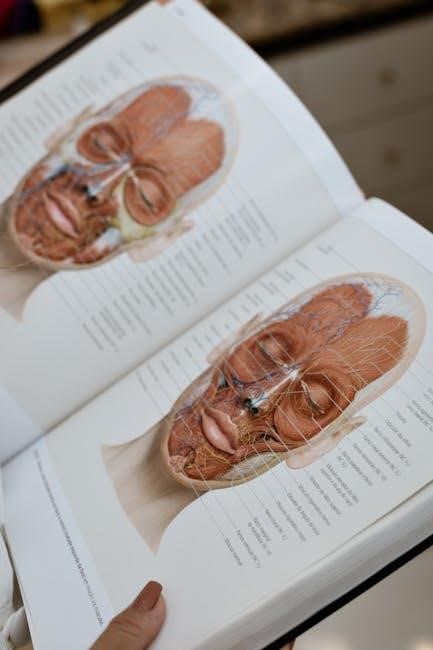
Evidence-Based Practice
Evidence-based practice integrates research, clinical expertise, and patient values to deliver high-quality care. Stay updated with current guidelines and apply proven interventions to improve patient outcomes effectively.
9.1 Understanding Evidence-Based Nursing
Evidence-based nursing integrates research, clinical expertise, and patient preferences to guide practice. It emphasizes using systematic reviews, clinical trials, and best practices to deliver safe, effective care. By staying updated with current guidelines, nurses can apply proven interventions, improving patient outcomes and reducing variability. This approach fosters a culture of continuous improvement, ensuring care is grounded in the latest evidence while respecting individual patient needs and promoting optimal health results.
9.2 Applying Research to Clinical Practice
Applying research to clinical practice involves translating evidence-based findings into actionable care strategies. Nurses use research to inform decisions, such as selecting medications, managing wounds, and preventing complications. By critically evaluating studies and guidelines, they ensure interventions are effective and patient-centered. This process enhances clinical judgment, improves outcomes, and aligns care with best practices, fostering a culture of excellence and continuous improvement in medical-surgical nursing.
9.3 Staying Updated with Current Guidelines
Staying updated with current guidelines is crucial for delivering evidence-based care. Nurses can access the latest recommendations through professional journals, online resources, and continuing education. Regularly reviewing updated protocols ensures adherence to best practices, improving patient outcomes. Utilizing study guides with current research and practice questions helps nurses apply new knowledge effectively. By staying informed, nurses maintain high standards of care and adapt to evolving healthcare demands, ensuring safe and effective patient management in medical-surgical settings.
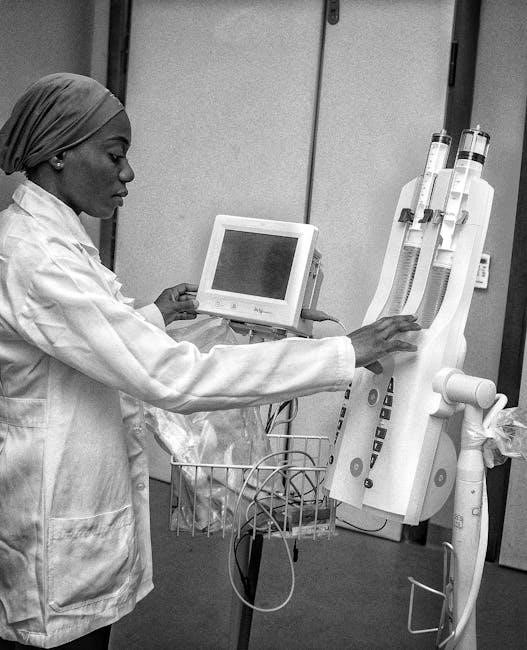
Test-Taking Strategies
Mastering test-taking strategies is essential for success. Practice with sample questions, manage exam anxiety, and prioritize time effectively to enhance performance and confidence during certification exams.
10.1 Tips for Success on Certification Exams
Achieving success on certification exams requires a strategic approach. Start by creating a structured study plan, focusing on weak areas identified through practice tests. Understand the exam format and question types to improve time management. Regularly review and practice with sample questions, analyzing answer explanations to reinforce learning. Stay calm and well-rested before the exam, and consider using flashcards for quick concept reviews. Consistent practice and confidence-building techniques will enhance your performance and ensure readiness for the certification exam.
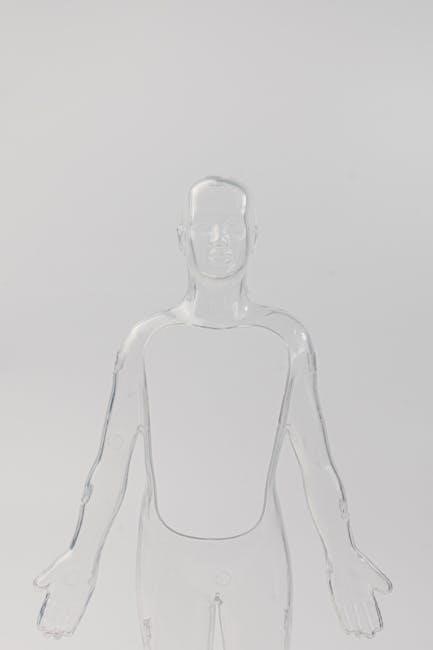
10.2 Practicing with Sample Questions
Practicing with sample questions is essential for exam readiness. It helps identify knowledge gaps and strengthens understanding of key concepts. Use practice questions to refine critical thinking and time management skills. Detailed answer explanations provide clarity on complex topics, enhancing learning. Regularly reviewing questions simulates the exam environment, building confidence. Incorporate full-length practice exams to assess readiness and focus on areas needing improvement. Consistent practice with sample questions ensures a thorough preparation for the certification exam and improves overall performance.
10.3 Managing Exam Anxiety
Exam anxiety can hinder performance, but effective strategies can help manage it. Practice deep breathing exercises, positive visualization, and time management techniques to stay calm. Review study materials thoroughly to build confidence. Familiarize yourself with the exam format and content to reduce surprises. Prioritize self-care, including adequate sleep, nutrition, and relaxation. Stay focused on your strengths and remind yourself of your preparation. Remember, anxiety is normal, but with the right mindset and strategies, you can overcome it and perform your best.
Additional Resources and Tools
Enhance your preparation with recommended textbooks, online resources, flashcards, and study groups. These tools provide comprehensive support for exam success and clinical practice excellence.
11.1 Recommended Textbooks and Guides
Enhance your study with textbooks like Medical-Surgical Nursing: Concepts and Practice and Brunner & Suddarth’s Textbook of Medical-Surgical Nursing. These guides provide in-depth reviews, practice questions, and clinical scenarios to strengthen your understanding. Additionally, resources like the Medical-Surgical Nursing Study Guide by Newstone Test Prep offer comprehensive reviews, 450 practice questions, and detailed answer explanations. These tools align with certification exams, ensuring you are well-prepared for both the exam and real-world patient care. Utilize AI-generated flashcards and summaries for added support.
11.2 Online Resources and Flashcards
Supplement your studies with online resources like Quizlet and Khan Academy for interactive flashcards and video tutorials. Platforms such as ReMarNurse and NurseStudyNet offer digital flashcards, practice questions, and study guides tailored to medical-surgical nursing. Additionally, AI-generated tools provide personalized summaries and essay prompts, enhancing your study efficiency. These resources are accessible anytime, making it easier to review complex concepts and stay updated on the latest nursing practices. They complement traditional study materials, ensuring a well-rounded preparation for exams and clinical challenges.
11.3 Study Groups and Peer Support
Joining study groups and leveraging peer support can significantly enhance your learning experience. Collaborative environments allow for shared knowledge, problem-solving, and mutual encouragement. Online forums, social media groups, and university-sponsored platforms provide opportunities to connect with fellow students. Active participation in group discussions and case studies fosters deeper understanding. Additionally, peer support helps reduce stress and builds confidence. Encourage open communication and celebrate each other’s progress to create a positive and productive learning atmosphere that complements your individual study efforts.

